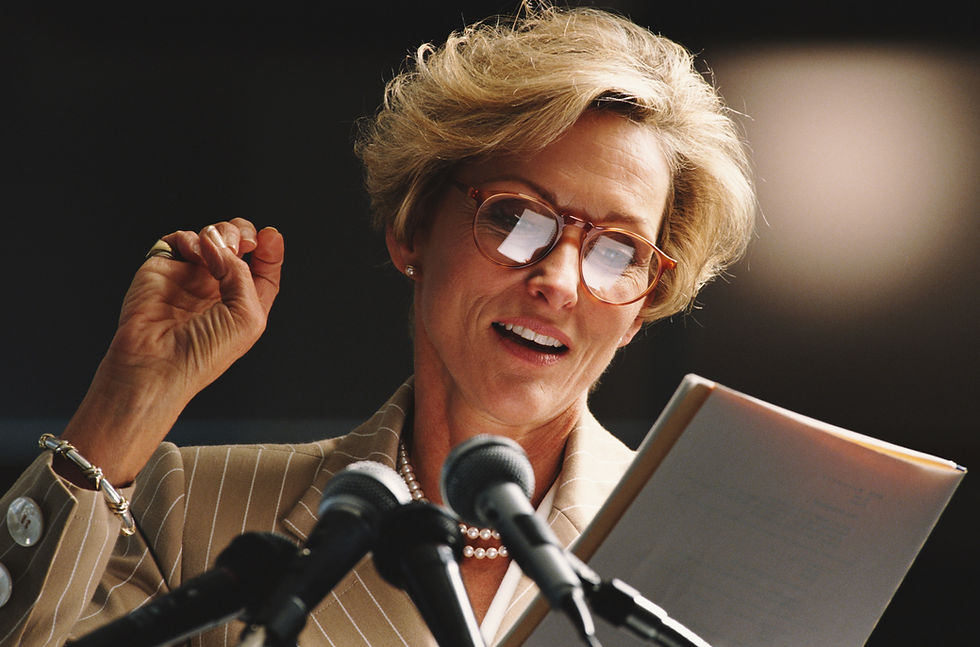The Complex Meaning Behind Calling a Disabled Person an Inspiration
- visitablecertifica
- Jan 14, 2022
- 4 min read
“If they can do this then what's your excuse?” Social media is littered with
messages like this, usually accompanied by images and stories of someone with a disability. Media like this can be commonly found on Facebook and Instagram and is frequently passed around to provide non-disabled people with a source of inspiration.
This seemingly harmless behavior – which has been coined with a somewhat provoking term, “inspiration porn” – is far more nuanced than one might think at first glance. Content that takes this form often glorifies an accomplished member of the disabled community to use in the argument of “if they can accomplish something with their disability then non-disabled people viewing it must be capable of so much more!” Inspiration porn neglects the fact that many barriers that people with disabilities face are the result of a society that is inaccessible and designed without the input of people who belong to the community. More often than not, content that falls into this category was created without the input or approval of the disabled person being represented. This makes it easy for a message to be expressed that the person in question, as well as the broader disabled community, will not align with.
One of the most famous examples of inspiration porn cluttering the internet is Scott Hamilton's quote “The only disability in life is a bad attitude”, usually accompanied by the image of a person with some disability striking an empowered and uplifting pose or participating in physical activity. This line, like many others, promotes the idea that without a disability, people should have no excuse to not achieve what they want in life. An attitude like this comes with the dangerous and inaccurate assumption that those in the disabled community will likely fall short of their goals and aspirations due to their circumstances. This line, like many others, promotes the idea that achieving anything in life can always boil down to mind over matter and that a disability won’t stand in the way of that.
This is where the complexity behind inspiration porn and sentiment towards it arises. On the one hand, there is concern around the exploitative and belittling nature of the messages behind it, but simultaneously, another cohort of media consumers see inspiration porn as an uplifting way to celebrate the achievements or aptitude that those in the disabled community have. With these conflicting attitudes floating around in the digital world, it becomes increasingly difficult to decide what is “appropriate” or not when trying to represent people with disabilities.
To provide some constructive insight on the matter, here are a couple of examples of inspiration porn that are probably wise to steer clear of, as they are often received as being offensive and invalidating for disabled persons:
Posting pictures of oneself or others helping those with disabilities and highlighting this as evidence of how benevolent you/they are. In doing so, content like this reinforces the “othering” that those with disabilities repeatedly face by the non-disabled population. Rather than portraying an act of kindness towards a disabled person as being a selfless, merciful gesture worthy of boasting about, consider giving more focus to saying what was learned from the experience for example, what barriers exist that caused the need for assistance and what changes need to be made, or consider not posting these pictures at all.
Commenting on the posts of those with disabilities with sentimental messages such as “bless you” or praises of their “bravery”. While this is slightly more indirect than posting one’s own content that qualifies as inspiration porn, interactions like this online further assert the belief that people living with disabilities deserve pity and recognition for simply living the way they do. Think about how you might engage on a social media post from a non-disabled person who may be doing the exact same thing that a disabled counterpart is posting about. Should the fact that one of them is using a mobility aid, for example, warrant a different reaction? Certainly not, and adjusting our outlook towards digital media that displays persons with disabilities is a huge first step in transitioning to an online world that doesn’t separate or exclude others based on characteristics or ability.
This can be a very difficult issue to tackle. Those who are posting inspiration porn usually mean well. When this type of content is circulated it can make the creator feel good about themselves because they are “including” those with disabilities. This threatens to trivialize inclusion and perpetuate the marginalization of the disabled community, however. It goes without saying that not everything on social media highlighting individuals with disabilities/the disabled community is inspiration porn, but rather when content is created and posted in this dangerous context we’ve discussed, it can have a negative impact. These posts have broad-reaching effects in denigrating those with disabilities and sets back so much of the progress many have been trying to make.
It is important that the fight for inclusion goes beyond just making buildings accessible to also change behavior and etiquette. Being inclusive and sensitive in the way we think and act is crucial to creating lasting change and an attitude that will truly give people in the disabled community a seat at the table.




Comments